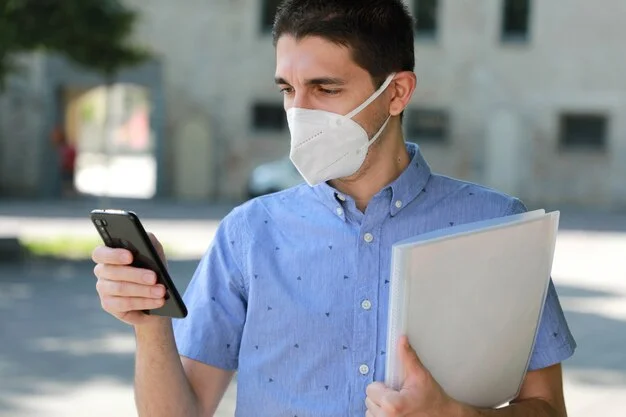Asbestos exposure is widely recognized as a serious health risk, but many people associate it primarily with direct occupational exposure. However, secondary exposure can also cause life-threatening conditions such as mesothelioma and lung cancer. Family members of workers who handled asbestos-containing materials may have unknowingly inhaled asbestos fibers carried home on clothing, hair, or personal belongings. Over time, repeated exposure could lead to devastating health consequences.
New Jersey has a long history of industrial and construction work where asbestos was heavily used. Those suffering from illnesses due to secondhand exposure may wonder whether legal action is possible. While proving secondary exposure can be complex, individuals affected in New Jersey may have legal options to seek compensation for medical expenses, pain and suffering, and other damages.
Understanding Secondary Asbestos Exposure
Secondary asbestos exposure occurs when individuals inhale or ingest asbestos fibers without directly working with asbestos-containing materials. Workers in industries such as shipbuilding, manufacturing, and construction often handled asbestos products daily, unknowingly bringing fibers home on their clothing or tools. Family members who regularly washed contaminated work clothes or spent time near these workers faced prolonged exposure.
Unlike direct occupational exposure, secondary exposure is harder to detect until symptoms of asbestos-related diseases appear years or even decades later. Those suffering from illnesses caused by secondhand exposure often face the same devastating medical conditions as primary victims despite never working in high-risk environments. As more cases emerge, courts have begun recognizing the rights of secondary exposure victims to pursue legal claims.
New Jersey’s Laws on Asbestos Exposure Claims
New Jersey has established legal avenues for asbestos exposure victims, including those affected through secondary exposure. State laws allow individuals diagnosed with asbestos-related diseases to file lawsuits against negligent employers, manufacturers, and property owners responsible for their exposure. While proving direct exposure is often more straightforward, courts have acknowledged secondary exposure cases when sufficient evidence is presented.
To succeed in a claim, plaintiffs must demonstrate that a defendant’s negligence led to asbestos exposure, resulting in illness. New Jersey follows a “strict liability” standard for asbestos manufacturers, meaning companies that produced or sold asbestos products can be held responsible even if they were unaware of the risks at the time. Victims of secondary exposure may also pursue claims against businesses that failed to implement safety measures to prevent fiber transmission to workers’ families.
Challenges in Proving Secondary Asbestos Exposure
Proving liability in secondary asbestos exposure cases can be complex due to the indirect nature of contamination. Unlike direct occupational exposure, secondhand exposure requires demonstrating a clear link between the asbestos source and the plaintiff’s illness. Key challenges include:
- Tracing the Source of Exposure – Identifying the specific workplace or location where asbestos fibers originated can be difficult.
- Establishing Regular Contact – Plaintiffs must show that asbestos-contaminated clothing or materials were frequently brought home.
- Medical Causation – Linking the diagnosed illness to secondary asbestos exposure rather than other environmental factors requires strong medical evidence.
- Employer or Manufacturer Responsibility – Holding a company accountable for indirect exposure is more legally complex than proving direct workplace exposure.
Due to these challenges, plaintiffs often rely on expert testimony, historical workplace records, and scientific studies to support their claims.
Who Can Be Held Liable for Secondary Asbestos Exposure?
Companies that manufacture, distribute, or use asbestos-containing products can be held responsible for failing to warn about the dangers of asbestos. Employers that did not provide protective gear or enforce decontamination procedures may also be liable for secondary exposure. New Jersey courts have recognized cases where businesses were aware of asbestos risks but failed to protect workers and their families.
In some cases, multiple parties may share liability. For example, property owners who allowed asbestos use on job sites, contractors who installed asbestos materials, and manufacturers of asbestos-containing clothing or equipment could all face legal action. Identifying responsible parties is a key step in building a strong case for compensation.
Compensation Available for Secondary Exposure Victims
Individuals diagnosed with mesothelioma, asbestosis, or lung cancer due to secondary asbestos exposure may be entitled to financial compensation. New Jersey allows victims to seek damages for medical expenses, lost income, pain and suffering, and wrongful death in cases where exposure led to fatal conditions. Compensation may come from asbestos trust funds, settlements, or jury verdicts.
Asbestos trust funds were established to compensate victims after many companies responsible for asbestos exposure declared bankruptcy. Victims of secondary exposure can file claims with these trust funds if the responsible company has an active fund. Additionally, personal injury lawsuits and wrongful death claims provide legal pathways to secure financial relief for affected families.
The Importance of Legal Assistance in Asbestos Lawsuits
Navigating asbestos exposure claims requires extensive knowledge of state laws, medical evidence, and legal strategies. Due to the complexities involved, seeking guidance from an experienced attorney is crucial. A skilled legal team can help victims identify responsible parties, gather supporting evidence, and pursue maximum compensation for their suffering.
Many law firms in New Jersey specialize in asbestos litigation and offer consultations to assess potential claims. Working with experienced Bailey & Glasser mesothelioma attorneys ensures that victims and their families receive the legal support necessary to build a strong case. Attorneys collaborate with medical professionals and industry experts to prove asbestos exposure, secure compensation, and hold negligent companies accountable. With proper legal representation, families can fight for justice and financial relief.
How to Take Legal Action for Secondary Asbestos Exposure
Filing a lawsuit for secondary asbestos exposure begins with gathering medical records, work history details, and any evidence linking the exposure to a family member’s occupation. Consulting a lawyer familiar with asbestos cases ensures that legal claims are filed correctly and within New Jersey’s statute of limitations.
Victims or their families should act promptly, as legal time limits may apply. In New Jersey, asbestos-related lawsuits must generally be filed within two years of diagnosis or discovery of the illness. Taking early action improves the chances of securing compensation and ensuring justice for those affected.







